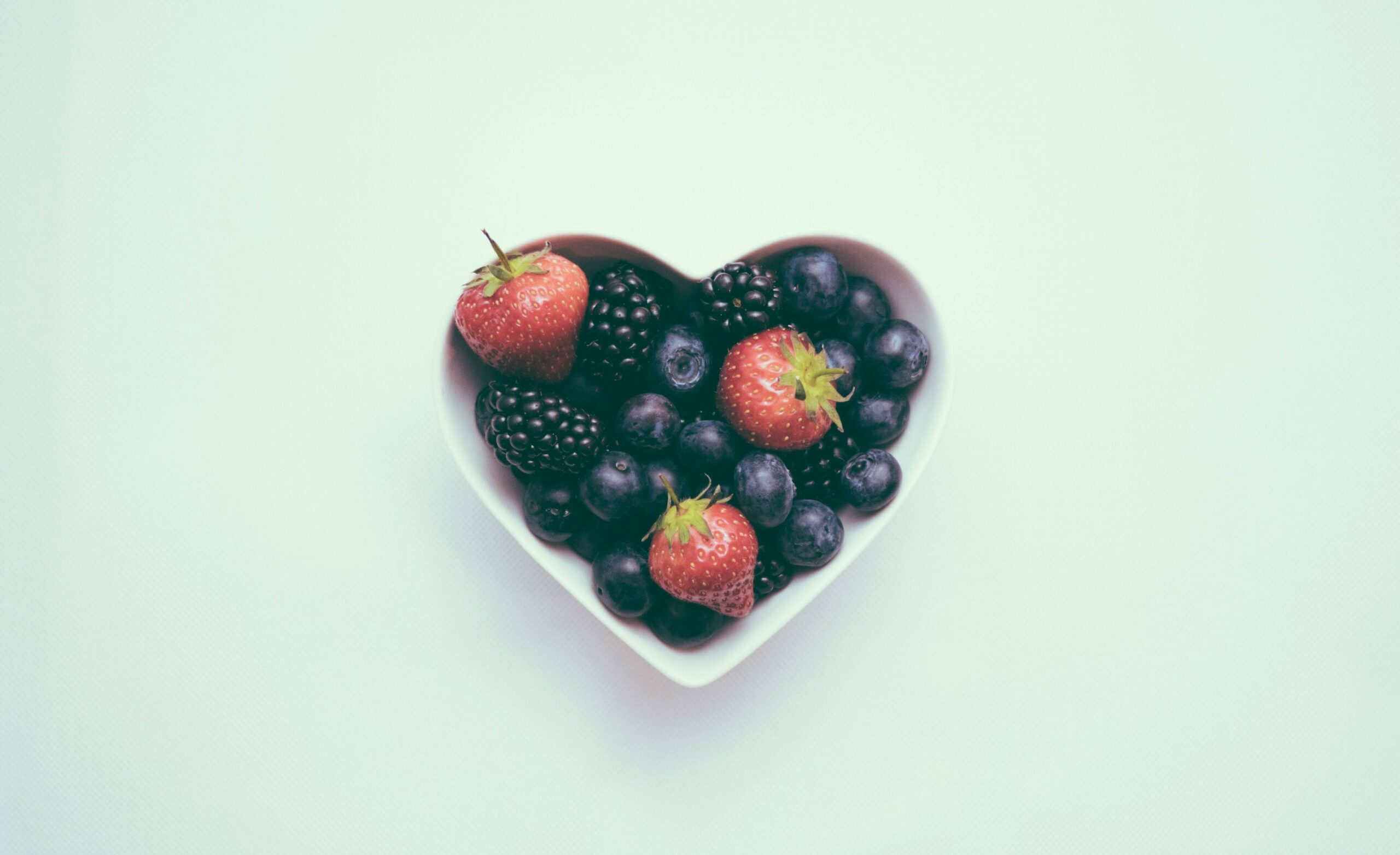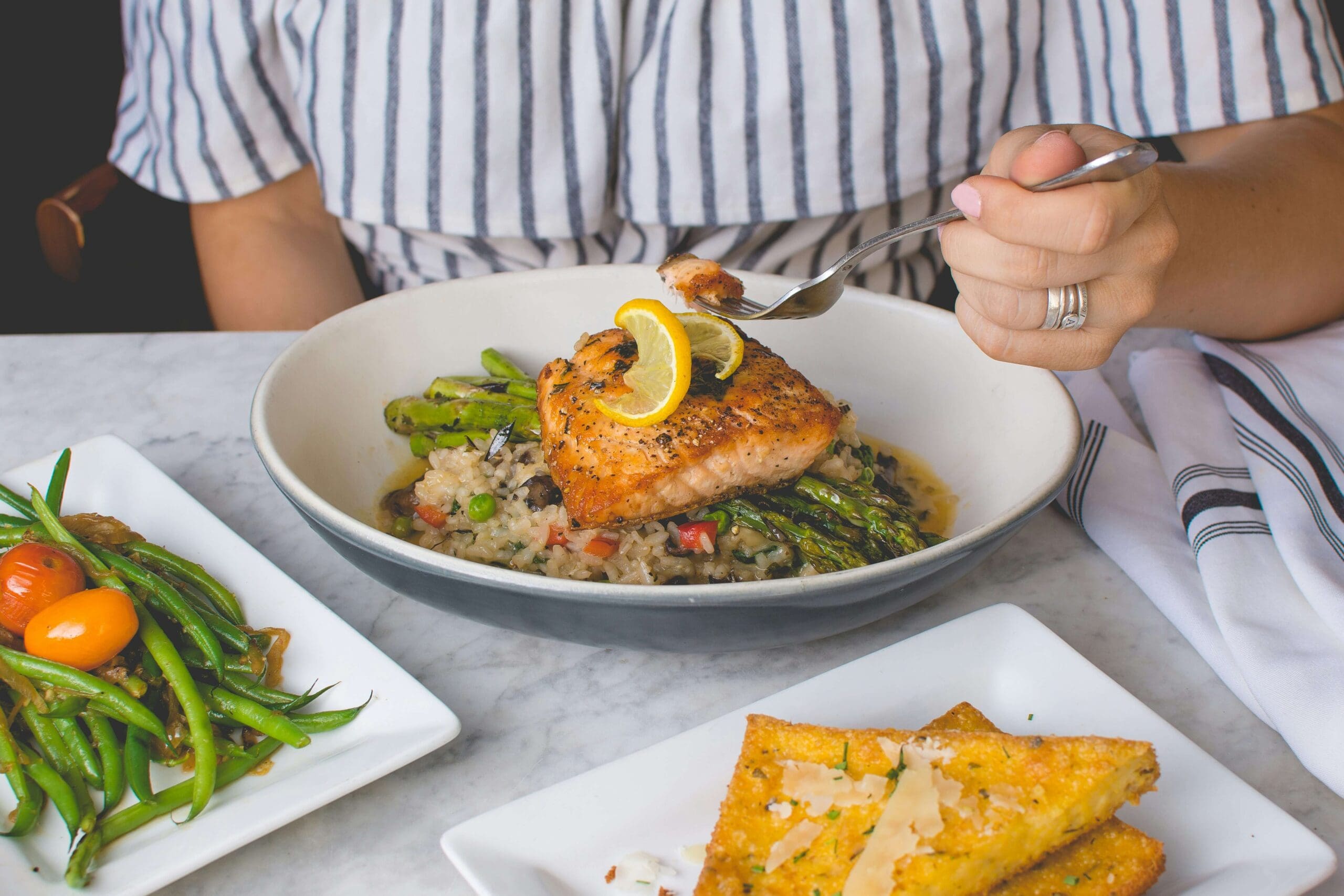Getting through cancer treatment is a major milestone, but once treatment ends, many survivors feel lost about what comes next. You’ve spent months or years following strict medical protocols, and now you’re wondering: “What should I actually be eating?”
The good news is that nutrition plays a powerful role in your recovery, helping you rebuild strength, reduce recurrence risk, and feel more like yourself again.
As your oncology dietitian working with thousands of survivors, I’ve seen how the right food choices transform not just physical health, but confidence and peace of mind too.
Get The Clean Scan Plan!
This plan is all about the NED Method 5-Pillar Approach which includes improving your nutrition, exercise, hydration, sleep quality and self care. It can help you reduce cancer risk and give you confidence around your next scan.
Why Nutrition Matters for Cancer Survivors
Nutrition helps your body heal faster after treatment, gives you energy to enjoy life again, and reduces your chances of cancer coming back. Your body just went through an intense battle. Cancer treatment affects every cell, from your muscles to your immune system, and proper nutrition repairs that damage.
How Diet Affects Recovery and Recurrence Risk
Here’s what I tell my clients in The NED Method Membership: food is information for your cells. Every bite you take either supports healing or makes your body work harder.
A healthy dietary pattern rich in vegetables, fruits, whole grains, and lean proteins provides the vitamins, minerals, and phytonutrients your body craves for repair work.
The science backs this up. Studies looking at overall healthy dietary patterns show links to longer survival after breast and prostate cancers.
But it’s not just about avoiding recurrence. Good nutrition fights inflammation, strengthens your immune system, and helps maintain the muscle mass that cancer treatment often steals.
The Connection Between Nutrition and Quality of Life
In my coaching programs, survivors often share that eating well gave them something they desperately needed: control. After months of feeling powerless during treatment, making intentional food choices brings back a sense of agency.
Plus, proper nutrition directly impacts your energy levels, brain fog, sleep quality, and mood. When you eat to support your body instead of just filling your stomach, you actually feel the difference within weeks.
Building Your Survivor Plate: Essential Food Groups
Let me show you exactly what should go on your plate each day. Think of it as creating a foundation that your body can build health on, meal after meal.
The goal is simple: fill half your plate with colorful fruits and vegetables, one quarter with whole grains, and one quarter with lean protein. This isn’t about perfection. It’s about consistency.
Fruits and Vegetables: Your Colorful Protection
I always tell my cancer survivor clients to “eat the rainbow” because different colors mean different protective compounds. Aim for at least 5 servings of colorful fruits and vegetables every day.
Blueberries have anthocyanins, tomatoes give you lycopene, and dark leafy greens pack in folate and other cancer-fighting nutrients.
Fresh, frozen, and canned options all work. Frozen produce is often picked at peak ripeness and flash-frozen, preserving nutrients better than fresh produce sitting in your fridge for a week.
Just watch for added sugars in canned fruit and excess sodium in canned vegetables. For more details on protective foods, check out my guide on functional foods for cancer prevention.
Whole Grains vs. Refined Grains
Whole grains contain the bran, germ, and endosperm, giving you fiber, B vitamins, and minerals that refined grains strip away.
When you swap white bread for whole grain, white rice for brown rice, or regular pasta for whole grain pasta, you’re making a choice that supports long-term health.
Good whole grain options include oatmeal, quinoa, brown rice, whole grain bread, barley, and bulgur.
These foods help with digestion, keep you feeling full longer, and provide steady energy instead of blood sugar spikes. A diet high in fiber from whole grains is associated with lower colorectal cancer risk.
Lean Protein Sources for Muscle Recovery
Protein is non-negotiable for cancer survivors. Your body needs it to rebuild muscle tissue, support immune function, and heal from treatment damage. During recovery, you may need up to 1.5 grams of protein per kilogram of body weight, which is significantly more than the average healthy person.
As your oncology dietitian, I help clients choose protein sources wisely. The best options include:
- Fish and seafood like salmon, shrimp, and cold-water fish rich in omega-3 fatty acids
- Poultry such as chicken and turkey breast
- Eggs which provide 6-7 grams of protein each plus essential nutrients
- Greek yogurt with 14-18 grams of protein per serving
- Plant-based proteins including beans, lentils, tofu, tempeh, and edamame
- Nuts and seeds like almonds, walnuts, chia seeds, and nut butters
Try to include protein at every meal and snack. This helps preserve muscle mass throughout the day instead of relying on one protein-heavy dinner.
Take Control of Your Health Journey
I want to give you something that’s helped thousands of survivors find clarity and confidence. The Clean Scan Plan breaks down the exact steps you need to take to reduce cancer risk and feel empowered about your health.
Staying Hydrated During and After Treatment
Water doesn’t get enough credit for its role in recovery. Your body is roughly 60% water, and every organ system depends on proper hydration to function.
After cancer treatment, staying hydrated helps flush toxins, prevents constipation, supports kidney function, and maintains energy levels.
How Much Water Do Cancer Survivors Need?
Women should aim for about 11.5 cups of total fluids daily, while men need about 15.5 cups. This includes water from foods and all beverages combined. About 20% typically comes from food, especially fruits and vegetables with high water content.
Many foods are over 85% water and help you meet fluid needs:
- Watermelon, strawberries, and cantaloupe
- Cucumbers, celery, and lettuce
- Tomatoes and bell peppers
- Oranges and grapefruits
- Soups, broths, and smoothies
Avoid relying on caffeinated beverages. While coffee and tea do provide some hydration, excessive caffeine can have a mild diuretic effect. Stick to no more than 4 cups of coffee daily..
Common Questions About Survivor Nutrition
Every day in my programs, survivors ask me the same questions. Let me address the top three so you have clear, evidence-based answers.
Should I Take Dietary Supplements?
Here’s what surprises most people: over 70% of cancer survivors take dietary supplements, but they’re not generally recommended for cancer prevention or survivorship. The best approach is getting your vitamins, minerals, and antioxidants from real food.
Are Fresh, Frozen, or Canned Foods Better?
All three have a place in a healthy diet. Fresh foods are great when they’re in season and you’ll eat them quickly. But frozen produce is often more nutrient-dense because it’s picked at peak ripeness and flash-frozen immediately. Fresh produce can lose nutrients sitting in storage and transport.
Is a Plant-Based Diet Right for Me?
Plant-based eating patterns like the Mediterranean diet, DASH diet, or vegetarian diets can all support cancer survivor health. These patterns emphasize vegetables, fruits, whole grains, legumes, and nuts while limiting red and processed meat. You don’t have to go fully vegan or vegetarian.
When to Work With a Registered Dietitian
If you’re struggling with ongoing side effects, unexplained weight loss or gain, confusion about what to eat, or you just want personalized guidance, working with a registered dietitian who specializes in oncology nutrition makes all the difference. As your oncology dietitian, I create customized plans that fit your specific cancer type, treatment history, current symptoms, and lifestyle.
If you’re ready for expert, personalized support, apply here for: VIP 1:1 Cancer nutrition & Lifestyle Coaching with me today so you don’t have to second guess everything.
References
- https://www.hopkinsmedicine.org/health/wellness-and-prevention/cancer-survivorship-nutrition
- https://www.cancer.org/cancer/survivorship/be-healthy-after-treatment/eating-well-after-treatment-ends.html
- https://cancerblog.mayoclinic.org/2021/12/30/7-steps-to-better-nutrition-habits-for-cancer-survivors/
- https://www.mdanderson.org/content/dam/mdanderson/documents/patients-and-family/becoming-our-patient/while-youre-here/pe-booklets/survivorship/Nutrition.pdf
- https://acsjournals.onlinelibrary.wiley.com/doi/full/10.3322/caac.21721
- https://www.aicr.org/resources/blog/how-to-stay-hydrated/
- https://www.mdanderson.org/cancerwise/how-much-water-should-you-drink-a-day.h00-159778812.html






